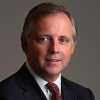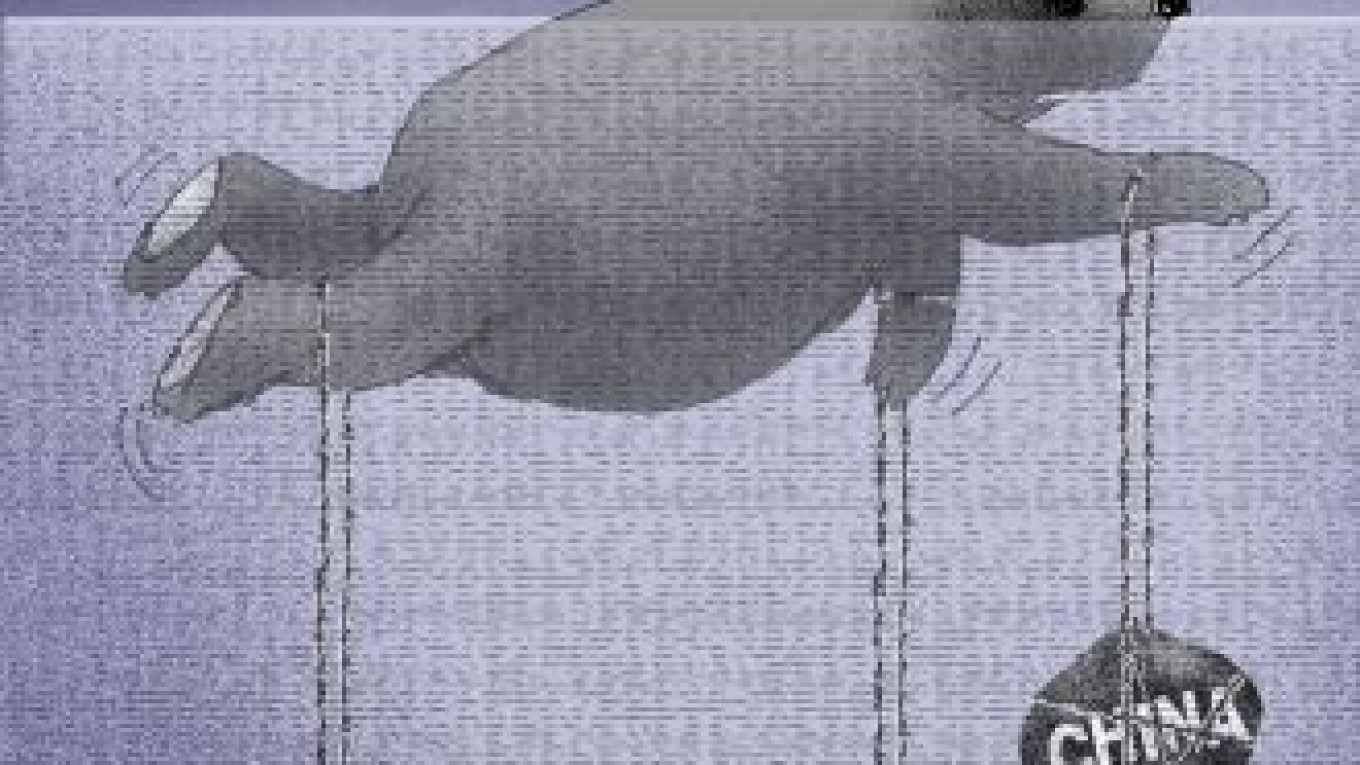Over the past couple of weeks, the International Monetary Fund, or IMF, and the World Bank have issued revised global economic forecasts for this year and for 2014. While generally optimistic that the world is pulling slowly out of the slump of recent years, the agencies temper their optimism with a warning that the main risks are still on the downside. What happens in the rest of the world matters a great deal to the Russian economy and to capital markets. The strength of global trade is a key element in how the domestic economy will perform in 2014. It will be a factor in determining how much investment money may be available to help kick-start the next growth driver and where asset prices, including the ruble, will trade.
The government justifiably points to a strong balance sheet and fiscal policy priorities aimed at preserving monetary and macro stability as a reason why the country may avoid any return to crisis, even if the rest of the world slides into recession. But, as I have pointed out in a previous op-ed, a strong balance sheet does not in itself lead to a pickup in the pace of growth, certainly not to the level now needed to take Russia to the next level of sustainable development. For that to be delivered, we need not only effective domestic fiscal policies but also a robust global trade backdrop and less investment-risk phobia. Russia's economy is therefore just as much a hostage to the economic and fiscal trends in the U.S., EU and China as it is to Kremlin policies.
It is proposed by many economists that any policy missteps in the world's major economies coming into 2014 might easily threaten a return to recession. Even those that prefer to avoid the "R" word acknowledge that policy mistakes might very easily lead to a repeat of this year, when generally optimistic forecasts at the start of the year had to be severely cut as the world's major economies continue to struggle with debt, deficit and confidence issues. The IMF now expects a 2.9 percent gain this year, while the original 3.6 percent growth forecast for 2013 has been pushed on to next year. Unfortunately the pattern in recent years — early year optimism giving way to a more sober reality — does not inspire a great deal of confidence that the 2014 number will be achieved. In October 2011, the IMF expected 2012 global growth of 4 percent but then had to cut it to 3.2 percent last fall.
The question of how strong global growth will be in 2014 breaks down into two separate questions as far as Russia concerned. First, will the developed economies get their policy programs right so as to sustain recovery and avoid another global crisis? Second, will the developing countries be able to withstand a tightening of global liquidity and change their growth models to a more domestic focus in order to sustain high rates of growth?
The biggest issue hanging over the world economy today is of course the U.S. budget and debt standoff. The head of the IMF recently made clear what all others fear: that this issue, if left unresolved for too long, risks a return to global recession. For that reason, I take the view that it will be resolved in one form or another so as to avoid the most dire consequences for the rest of us. But even with that optimism, the major question for developing economies, including Russia, is how and when the U.S. Federal Reserve starts to unwind its quantitative easing program. A major assumption underlying the IMF's global growth forecast in 2014 is that U.S. economic growth picks up from 1.6 percent this year to 2.6 percent next year. That assumes the so-called tapering is carried out efficiently so as not to derail the existing fragile recovery. It also assumes that domestic U.S. political squabbles do not continue to intrude and cause policy delays. A stalling of U.S. growth would impact commodity prices but sustain the Fed's QE program and a weak dollar. Stronger growth would lead to a strengthened dollar and a tightening of liquidity flows to emerging markets but greater overall investment confidence. With such contradicting outcomes, no wonder policy makers in emerging markets are slow to take more decisive actions today.
The backdrop to the forecast recovery in the eurozone, from negative 0.4 percent this year to positive 1 percent next year, also has risk painted all over it. The core countries are expected to show robust growth — for example, Germany's gross domestic product is expected to pick up from 0.5 percent growth this year to 1.4 percent next year — but the question marks are still flashing over the periphery countries like Greece, Spain or Italy. Those economies continue to struggle and any one of them may easily slide into a fresh crisis with even a small policy misstep. Any return to crisis in the eurozone would, as we have seen in the past, lead to a run from risky assets, including from those in Russia.
Then there is the emerging market question, or, more precisely from Russia's point of view, the China growth question. In its most recent review, the IMF specifically singled out the slow pace of structural and policy reforms in the emerging economies as a cause for concern coming into 2014 and beyond. The fund still expects the developing economies to deliver aggregate growth of 5.1 percent next year, up from 4.5 percent this year but a far cry from the 8.3 percent growth achieved in 2007. The IMF, along with many other agencies, has become much more vocal about its concern that the developing economies have not done enough to reduce vulnerability to a withdrawal of cheap liquidity as would happen courtesy of the U.S. Fed. They are also not doing enough to change their growth models away from reliance on investment growth and exports.
China has been specifically singled out for not having done enough to boost domestic consumption. The 2014 forecast growth of 7.3 percent, less than 7.6 percent expected this year and a little more than half its 13 percent in 2007, comes with a strongly worded caveat that growth may decelerate even further. If the economy sustains an average of 7.3 percent annual growth it will still double in size over the next decade and retain its near insatiable appetite for imported energy and other commodities.
Economists, investors and businesses will spend the long winter days scrutinizing all of the policy statements from the Kremlin, the Central Bank and other state financial agencies. But the bottom line is that the actions taken or avoided by counterparts in Washington, Brussels and Beijing will be just as important in determining whether the 3.0 percent domestic growth expected by the IMF and the relatively stable ruble planned by the Central Bank can be delivered, or whether next year will be yet another in the sequence of failed expectations.
Chris Weafer is senior partner with Macro-Advisory.com, a consultancy advising macro hedge funds and foreign companies looking at investment opportunities in Russia.
A Message from The Moscow Times:
Dear readers,
We are facing unprecedented challenges. Russia's Prosecutor General's Office has designated The Moscow Times as an "undesirable" organization, criminalizing our work and putting our staff at risk of prosecution. This follows our earlier unjust labeling as a "foreign agent."
These actions are direct attempts to silence independent journalism in Russia. The authorities claim our work "discredits the decisions of the Russian leadership." We see things differently: we strive to provide accurate, unbiased reporting on Russia.
We, the journalists of The Moscow Times, refuse to be silenced. But to continue our work, we need your help.
Your support, no matter how small, makes a world of difference. If you can, please support us monthly starting from just $2. It's quick to set up, and every contribution makes a significant impact.
By supporting The Moscow Times, you're defending open, independent journalism in the face of repression. Thank you for standing with us.
Remind me later.








